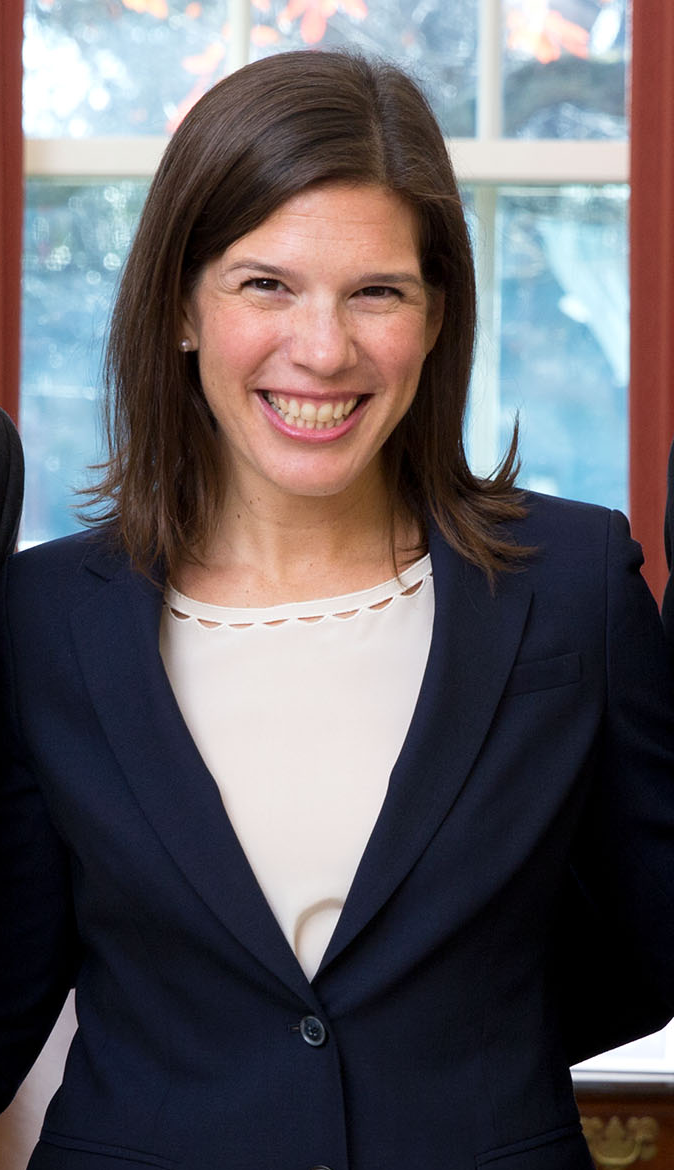Regina Waugh fights for women around the world as the Chief of Staff to the Ambassador-at-Large for Global Women’s Issues, Catherine Russell, at the U.S. Department of State. A well-read and highly accomplished leader, Regina breaks down her daily routine and explains the goals of the Office of Global Women’s Issues.
Catherine Russell, at the U.S. Department of State. A well-read and highly accomplished leader, Regina breaks down her daily routine and explains the goals of the Office of Global Women’s Issues.
What are the priority areas of the Office of Global Women’s Issues (GWI)?
There are four main areas:
The first is to address the low involvement of women in political and peace processes around the world. As one example, which is a presidential initiative, the United States encourages women to have equal access to participate fully in their societies whether that is as members of armed forces, voters, or candidates.
The second is to empower women economically. Overall, women are underrepresented in the labor force and, within the private sector, are more vulnerable to abuse or lower pay. GWI wants women to be able to move into leadership positions and empower women as entrepreneurs. Often, women are already making goods that can be brought into a market, but need help with registering and financing their business.
Third, stop gender-based violence. One in three women will experience GBV in her lifetime. This is an issue that can be difficult to address because in many countries, GBV is treated as a private/family matter. The United States has a global strategy to prevent and respond to gender-based violence and we often talk about our own experience in the United States to address this issue, a big part of which was shifting out thinking about domestic violence from a family matter to a criminal matter. GWI offers grants to community based organizations to help them fight GBV and provide support for survivors and we also engage with governments to encourage them to enact and enforce needed legislation. We recognize that change must come from both the political and societal levels.
Our final and most recent focus is adolescent girls. As many young girls grow up, they often see the world contract rather than expand. They face early marriage, pregnancy, and high susceptibility to AIDs specifically in Sub-Saharan Africa and parts of South Asia. All of these factors limit their ability to finish their education and earn a living. Through our Adolescent Girls Strategy and the Let Girls Learn initiative we are working with other parts of the U.S. government to fight child marriage and GBV and encourage girls to continue into and complete secondary school.
What are some concrete ways that our embassies are aiding women around the world?
We see our office as a place to provide resources and guidance to the many diplomats around the world who are working on gender issues through our embassies and consulates. They do incredible work, both engaging with their counterparts in other governments and with the general public. Embassies have launched public awareness campaigns around topics like GBV and used TV, radio, social media, and local media to raise awareness and start conversations within the local community. Each country is different and our approach must vary accordingly. We support and work closely with civil society because they know what makes the most sense in the local context and we’ve seen firsthand the power of civil society to make change here in the U.S.
Have you been mentored by any women during the course of your professional development?
Absolutely! I never had a formal mentorship but my most notable mentors have been bosses. I learned mostly by watching them be excellent at their jobs and, sometimes, thinking about how I would do things differently.
Tell me about your daily routine.
Before I leave work, I check the calendar for the following day so I know what to expect. When I arrive, I double-check the briefing book that has been prepared to support the Ambassador throughout her day and make sure she has what she needs. I typically arrive to the office early so that I can try to carve out time for broad and strategic thinking. The rest of my day is usually spent in meetings, fielding questions, and helping to facilitate communications within the office, both to the Ambassador and among the staff.
What is most difficult about your job?
Trying to keep an eye on everything at once. Our office does a tremendous amount of work – we’re covering half the population! I know that I’m just one person so I’m constantly asking myself “what’s most important?”
What advice would you give your 20-year-old self?
I would say not to worry too much! I was super stressed in college feeling like I wasn’t doing as much as I should and I think it’s important to remember that it will all work out. Also, it’s important to say yes to challenging opportunities that come your way.
What is a book you have gifted most?
I read a lot, but it is difficult to say – maybe I’m not giving away enough books! I did recently share the novel What is the What by Dave Eggers with one of my colleagues. It is based on the amazing true story of a Sudanese refugee who came to the U.S.
Finally, if you could have a billboard anywhere saying ANYTHING, what would it be and where?
‘Be nice.’ I would put that on a highway. Even though it is simple, I think we often forget it… especially when we are driving.
Contributor: Emily Zenthoefer


Bobbi804 October 12, 2016 at 11:19pm
This is so incredible!
Helloitsnia October 13, 2016 at 5:11pm
Wow! Very grateful for jobs like these that help support women. Definitely a perfect article for GenHERation. I love the billboard saying Be Nice!
AshleyB October 19, 2016 at 11:33pm
The Let Girls Learn initiative is SO important. Knowledge is power!